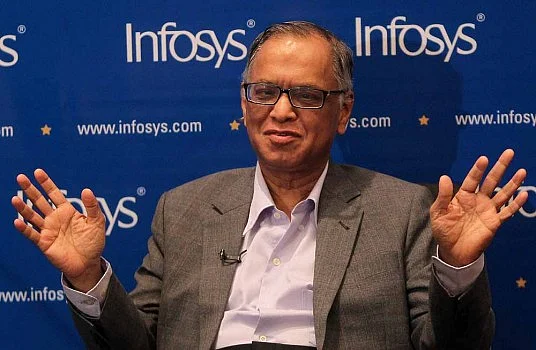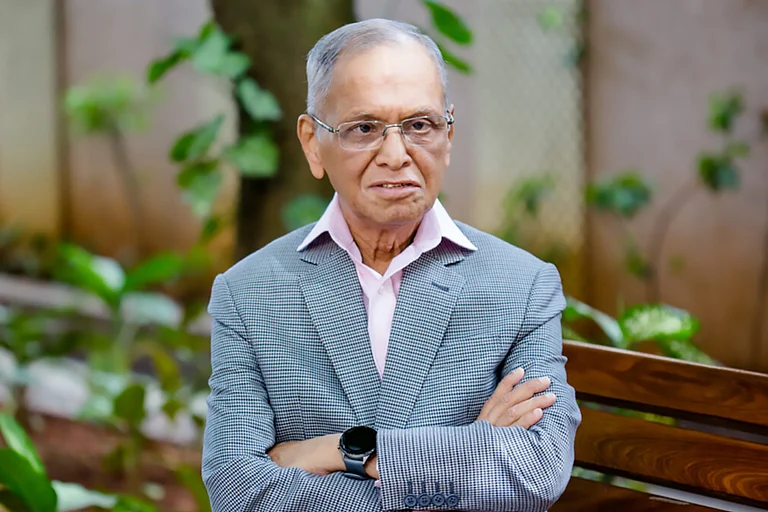Infosys co-founder Narayana Murthy has stirred a storm after a new suggestion over working hours. As per Murthy, Indian youth should work for 70 hours a week to make sure that India is able to compete with economies that have made tremendous progress.
Murthy said that India’s work productivity ranks among the lowest in the world and in order to bridge gap with countries like China, youth should express willingness to work 70 hours a week. He cited the post-World War 2 phase of Japan and Germany where workers put in extra hours of work.
“Unless we improve our work productivity, we will not be able to compete with those countries that have made tremendous progress,” Murthy opined.
His comments have expectedly garnered reactions from several netizens. While some have expressed support for his call, others have criticised the implications of longer work hours.
Looking at the data and studies done across the world, it appears that the Infosys founder is ignoring a reality: working hours in India are amongst the longest globally
A Reality Check
International Labour Organisation’s (ILO) latest data for 2023 shows that the workers of the country are already working more than their counterparts in other countries. As per the rankings, Indians work 47.7 hours a week, which is seventh longest in the world. The labour laws of the country allow for 48-hour working weeks.
Another reality to acknowledge is the quality of jobs available for workers. Recently, the Periodic Labour Force Survey (PLFS) suggested that self-employment is on the rise while wage employment has shrinked in the last six years. Given the fact that a large share of India’s workforce is employed in informal sector, it has been difficult to gauge the exact number of hours worked in a week.
However, a study by Rukmini S, Centre for Advanced Study of India Non-Resident Visiting Fellow, showed the condition of large share of self-employed workers. In her book ‘Whole Numbers and Half Truths: What Data Can and Cannot Tell Us About Modern India’ , she noted that average Indian works virtually every day of the week. The data was based on the time use survey conducted by India for the first time in 2019.
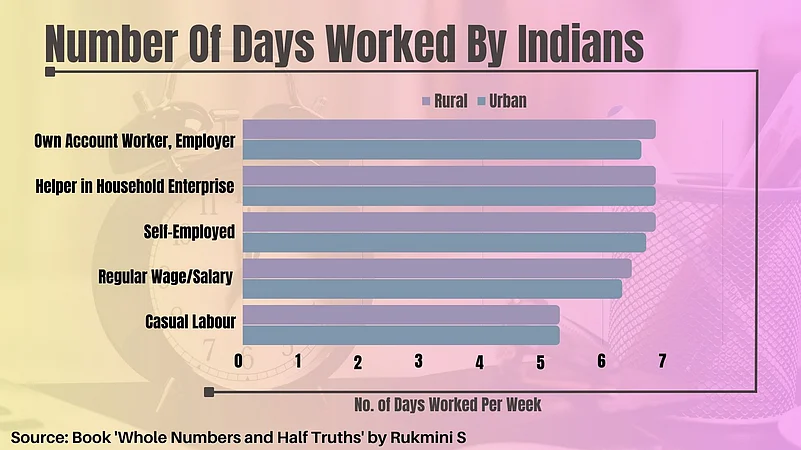
Despite having long working hours, as compared to global average, the work productivity of Indians is amongst the lowest globally. While Murthy is right in pointing out that India needs to improve its work productivity, studies on the issue point to a different solution.
Question of Productivity
As per the data compiled by Organisation of Economic Cooperation and Development (OECD) in 2015, longer work hours don’t necessarily translate into higher productivity. The study done for 38 countries showed that Mexico, which had the longest average working hours at 41.2, was the least productive amongst the countries ranked. Productivity was measured in terms of GDP per hour worked.
On the other hand, Luxembourg had the highest productivity at $93.4 GDP per hour worked with just 29 hours of average weekly work.
The labour productivity growth in India has also slowed down substantially in the last few years. Despite the fact that self-employment has gone up, which could have increased the working hours of people, productivity has not seen a substantial increase.
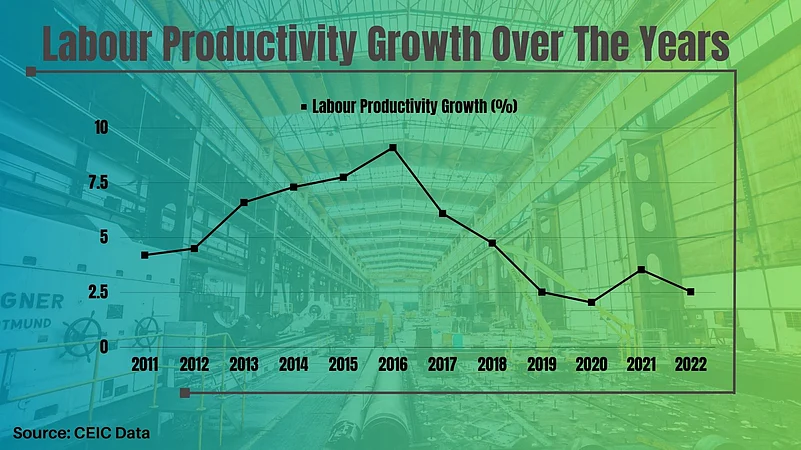
A study published by the The Lancet pointed out a deep structural issue. As per the study, the expected human capital, which shows the number of years an individual can work at peak productivity, was amongst the lowest in India.
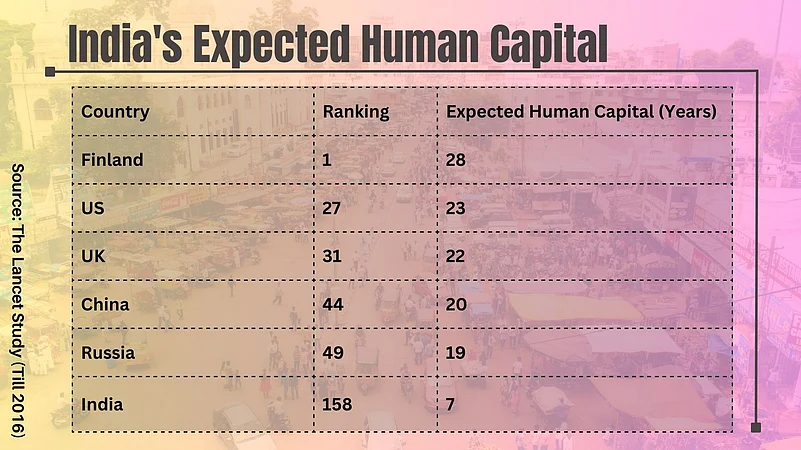
India ranked 158 in the list of 195 countries, suggesting that Indians worked for only seven years at their peak productivity as compared to 28 years of number 1 ranked Finland. The research noted that the focus needs to be on education and health along with physical infrastructure to boost economic productivity in a country.
While the country debates what is the appropriate number of hours to work in a week, the reality of Indian workforce and the studies on productivity need to be taken into account to arrive at the right answer. One might need to ponder: will working for longer be the solution for increasing productivity in the coming years?







